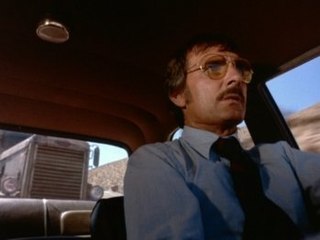 W
WABC Afterschool Special is an American television anthology series that aired on ABC from October 4, 1972, to January 23, 1997, usually in the late afternoon on weekdays. Most episodes were dramatically presented situations, often controversial, of interest to children and teenagers. Several episodes were either in animated form or presented as documentaries. Topics included illiteracy, substance abuse and teenage pregnancy. The series won 51 Daytime Emmy Awards during its 25-year run.
 W
WThe ABC Movie of the Week was a weekly television anthology series featuring made-for-TV movies, that aired on the ABC network in various permutations from 1969 to 1975.
 W
WThe ABC Sunday Night Movie is a television program that aired on Sunday nights, first for a brief time in 1962 under the title Hollywood Special to supposedly replace an open time slot for the TV show Bus Stop, which was cancelled after March 1962. It then began airing regularly under its more commonly known title from late 1964 to 1998, on ABC. Since 2004, it has aired sporadically as a special program, now titled the ABC Sunday Movie of the Week, though as of the 2011-12 television season, the only films in this timeslot were aired under the Hallmark Hall of Fame banner, which transferred to ABC in that season. However, in 2014, The Hallmark Hall of Fame moved exclusively to cable on the Hallmark Channel. As a result of this, the Sunday Night Movie is now exclusively relegated to two special holiday movies, The Sound of Music every holiday season and The Ten Commandments every Easter.
 W
WABC Weekend Special is a weekly 30-minute American television anthology series for children that aired Saturday mornings on ABC from 1977 to 1997, which featured a wide variety of stories that were both live-action and animated. Similar to both ABC Afterschool Special and The ABC Saturday Superstar Movie, the ABC Weekend Special differed in that it was primarily aimed at younger viewers following ABC's Saturday-morning cartoon lineup, whereas the ABC Afterschool Special was known for its somewhat more serious, and often dramatic, storylines dealing with issues concerning a slightly older teen and pre-teen audience. The main focus of ABC Weekend Special was to encourage children to read.
 W
WThe Bugs Bunny Show is an American animated anthology television series hosted by Bugs Bunny that was mainly composed of Looney Tunes and Merrie Melodies cartoons released by Warner Bros. between 1948 and 1969. The show originally debuted as a primetime half-hour program on ABC in 1960, featuring three theatrical Looney Tunes cartoons with new linking sequences produced by the Warner Bros. Cartoons staff.
 W
WCBS Playhouse is an American anthology drama television series that aired on CBS from 1967 to 1970. Airing twelve plays over the course of its run, the series won ten Primetime Emmy Awards and featured many noteworthy actors and playwrights.
 W
WCBS Sports Spectacular is a sports anthology television program that is produced by CBS Sports, the sports division of the CBS television network in the United States. The series began on January 3, 1960, as The CBS Sports Spectacular, and has been known under many different names, including CBS Sports Saturday, CBS Sports Sunday, Eye on Sports and The CBS Sports Show. The program continues to air on an irregular basis on weekend afternoons, especially during the late spring and summer months. Normally it airs pre-recorded "time-buy" sports events produced by outside companies, such as supercross or skiing competitions, or sponsored documentaries.
 W
WFantasy Island is an American fantasy drama television series created by Gene Levitt. It aired on the ABC television network from 1977 to 1984. The series starred Ricardo Montalbán as the mysterious Mr. Roarke and Hervé Villechaize as his assistant Tattoo. Guests were granted so-called "fantasies" on the island for a price.
 W
WGhost Story was an American television horror anthology series that aired for one season on NBC from 1972 to 1973. Executive-produced by William Castle, Ghost Story featured supernatural entities such as ghosts, vampires, and witches. The show's format and tone drew comparisons to NBC's Night Gallery and ABC's The Sixth Sense. By mid-season, low ratings led to a title change to Circle Of Fear and a change to the format.
 W
WGood Heavens is an ABC comedy anthology series produced by Columbia Pictures Television that aired between February 29 and June 26, 1976. It ranked #17 in the Nielsen ratings during the 1975-76 television season.
 W
WHallmark Hall of Fame, originally called Hallmark Television Playhouse, is an anthology program on American television, sponsored by Hallmark Cards, a Kansas City-based greeting card company. The longest-running prime-time series in the history of television, it first aired in 1951 and continues into the present day. From 1954 onward, all of its productions have been broadcast in color. It was one of the first video productions to telecast in color, a rarity in the 1950s. Many television movies have been shown on the program since its debut, though the program began with live telecasts of dramas and then changed to videotaped productions before finally changing to filmed ones.
 W
WThe Love Boat is an American comedy/drama television series set on luxury passenger cruise ship S.S. Pacific Princess, which aired on the ABC television network from 1977 to 1987; in addition, four three-hour long specials aired in 1986, 1987, and 1990. The series revolves around the ship's captain Merrill Stubing and a handful of its crew, with several passengers—played by various guest star actors for each episode—having romantic and humorous adventures. It was part of ABC's popular Saturday-night lineup of the time, which also included Fantasy Island until that series ended two years earlier in 1984. Its regular ports of call were Puerto Vallarta and Acapulco.
 W
WLove Story is an American dramatic anthology television series focused on stories of romance. It aired from October 3, 1973, to January 2, 1974, on NBC.
 W
WLove, American Style is an anthology comedy television series produced by Paramount Television that originally aired between 1969 and 1974. For the 1971-72 and 1972-73 seasons, it was a part of an ABC Friday prime-time lineup that also included The Brady Bunch, The Partridge Family, Room 222 and The Odd Couple.
Masterpiece is a drama anthology television series produced by WGBH Boston. It premiered on Public Broadcasting Service (PBS) on January 10, 1971, making it America's longest-running weekly prime time drama series. The series has presented numerous acclaimed British productions. Many of these are produced by the BBC, but the line-up has also included programs shown on the UK commercial channels ITV and Channel 4.
 W
WMedical Story is an American anthology series that aired on NBC from September 4, 1975, until January 8, 1976.
 W
WThe Next Step Beyond is a 1978 revival of the 1950s–1960s American television series One Step Beyond, hosted by original host John Newland. Like One Step Beyond, the series purported to tell true stories of the supernatural. Unlike the original, this series had a short run of one season of 25 episodes, 14 of which were remakes.
 W
WNight Gallery is an American anthology television series that aired on NBC from December 16, 1970 to May 27, 1973, featuring stories of horror and the macabre. Rod Serling, who had gained fame from an earlier series, The Twilight Zone, served both as the on-air host of Night Gallery and as a major contributor of scripts, although he did not have the same control of content and tone as he had on The Twilight Zone. Serling viewed Night Gallery as a logical extension of The Twilight Zone, but while both series shared an interest in thought-provoking dark fantasy, more of Zone's offerings were science fiction while Night Gallery focused on horrors of the supernatural.
 W
WPolice Story is an American anthology, crime-drama, television series that aired weekly on NBC from September 25, 1973 through April 5, 1977, followed by a season of irregulary scheduled television film specials from September 27, 1977, to May 28, 1978, with three further television films screened in 1979, 1980, and 1987. The show was created by author and former police officer Joseph Wambaugh and was described by The Complete Directory of Prime Time Network and Cable TV Shows as "one of the more realistic police series to be seen on television." It was produced by David Gerber and Mel Swope.
 W
WProject U.F.O. is an American television series which ran on NBC from 1978 to 1979. Running for two seasons of 13 episodes each, the show was based loosely on the real-life Project Blue Book. The show was created by Jack Webb, who pored through Air Force files looking for episode ideas.
 W
WQuinn Martin's Tales of the Unexpected is an American horror and science fiction anthology television series produced by Quinn Martin, and hosted and narrated by William Conrad. It aired from February 2 to August 24, 1977.
 W
WThe Walt Disney Company has produced its flagship anthology television series under several different titles since 1954.
 W
WWhat Really Happened to the Class of '65? is a 1976 non-fiction book by Michael Medved and David Wallechinsky. Inspired by a 1965 Time magazine article, the authors follow up on the people of Palisades High School, some of whom were mentioned in the article, and the book mainly consists of that follow-up. There was at least one sequel, continuing the story from the point of view of a decade or more later.
 W
WABC's Wide World of Sports was an American sports anthology television program that aired on the American Broadcasting Company (ABC) from April 29, 1961 to January 3, 1998, primarily on Saturday afternoons. Hosted by Jim McKay, with a succession of co-hosts beginning in 1987, the title continued to be used for general sports programs on the network until 2006. In 2007, Wide World of Sports was named by Time on its list of the 100 best television programs of all-time.
 W
WWild Kingdom, also known as Mutual of Omaha's Wild Kingdom, is an American documentary television program that features wildlife and nature. It was originally produced from 1963 until 1988, and was revived in 2002. The show's second incarnation aired until 2011 on Animal Planet in the United States. A third incarnation streamed webisodes on a dedicated Youtube channel from 2013 to 2018.